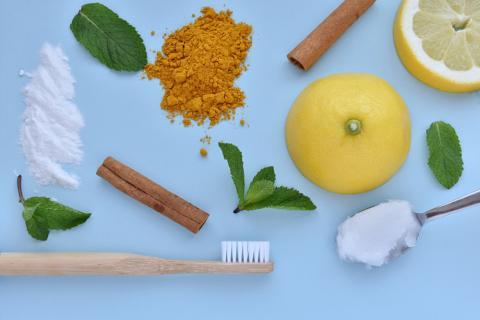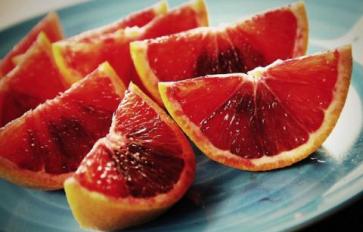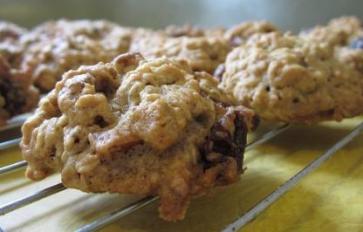
Bad breath—we’ve all experienced it at some point in time. There are many reasons a person may have halitosis, or bad breath. Things like smoking, certain foods, or missing a brushing can all contribute to it. The primary cause and culprit behind bad breath are bacteria. Bacteria can build up on the back of our tongue and between our teeth.
Today’s walk through Mother Earth’s Medicine Cabinet will take us down the oral health and hygiene section. I will share 7 natural remedies to beat that bad breath once and for all. Sometimes we have to eliminate certain foods from our diet while in other cases it’s just a matter of rinsing our mouths out. Let’s see what the cabinet has in store.
Teas
Green, black, and herbal teas can all help banish bad breath. Drinking black or green tea can help stop the growth of bacteria that causes nasty halitosis. It is the antioxidant polyphenols present in the tea that are responsible for cleaning up. Sage (Sage officinalis) tea is another amazing tea that is great for oral health. Steep some sage for about 7 minutes, strain, and enjoy. It’s good to add a little honey to sweeten the taste. Sage has natural cleansing, anti-inflammatory, antimicrobial, and antioxidant properties to boot.
Tea Tree Oil
Tea tree oil acts as a natural disinfectant that is great for making your own toothpaste and mouthwash. You can also use the essential oil to make a gargle or mouth rinse. Peppermint, cinnamon, and spearmint are all good to use when making your home oral hygiene products.
Parsley
The little sprigs of parsley that garnish your plate when you’re at a restaurant are much more than something pretty to look at. In fact, they are given to you to neutralize bad breath. The chlorophyll present in the parsley is responsible for this fine act. Not to mention, parsley is packed full of vitamins and minerals. When you’re done with your meal simply chew on the parsley sprig and it will freshen your breath. It is also good for digestion.
Apple Cider Vinegar
Apple cider vinegar makes a lot of lists in the medicine cabinet but that’s because it is versatile. ACV has pH balancing effects, which help with bad breath. You see, the pH levels in our mouth have an effect on our teeth and gums. The levels can become too high or too low which can result in the buildup of bacteria growth and tooth decay. You can make a gargle by mixing one tablespoon of ACV with a cup of water or you can just make a whole cup of it to drink. If you are going to drink it I suggest adding a tablespoon of honey to accompany the ACV. Need some inspiration? Check out this easy ACV drink recipe!
Cloves
Cloves are very well-known for helping ease the pain of toothaches. The antibacterial properties eliminate the bacteria and the capsaicin found within the clove’s natural oils takes away any pain, leaving a slight numbing feeling. Cloves also contain antifungal and antiseptic properties, making them some pretty good medicine. Just chew on a few cloves after meals or make a tea to drink. You can also use the oil in your toothpaste or mouthwash.
Cinnamon
I mentioned earlier adding cinnamon to your homemade toothpaste. This is because cinnamon naturally protects against bacteria buildup and helps prevent a case of halitosis, cavities, infection, and tooth decay. Use the essential oil in your mouthwash or toothpaste.
Lemon Juice
Lemons have the ability to prevent the growth of bacteria due to the acidic content. You can make a mouth rinse by adding about a tablespoon of lemon juice in a cup of water. Use the rinse to cleanse your mouth after meals. I drink lemon water in the morning so I usually just rinse with some of it.
Bad breath can be embarrassing and in some cases, it can lead to people becoming self-conscious. There are natural ways to deal with and combat bad breath—lemon water in the mornings is a great place to start.
As usual, I hope today’s walk through the medicine cabinet finds you well! If you’re dealing with a case of bad breath, try one of these natural remedies and feel secure about breathing easy again. Happy Healing!








